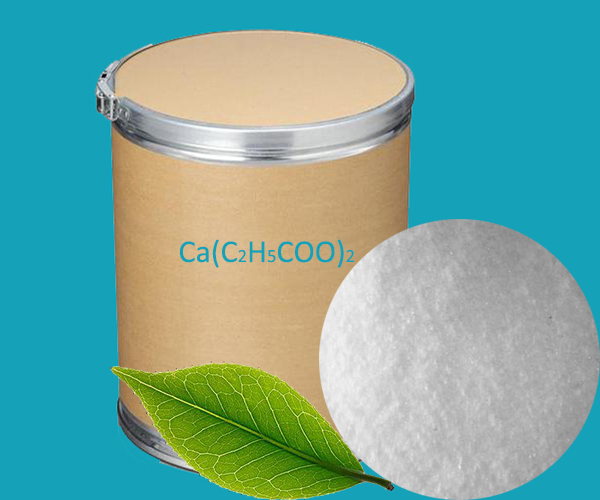Calcium propionate, with the chemical formula Ca(C2H5COO)2, is a mold inhibitor approved for use in food and feed by the World Health Organization and the Food and Agriculture Organization of the United Nations. It can be absorbed by humans and animals through metabolism and provide essential calcium to humans and animals, which is incomparable with other antifungal agents.
Calcium propionate is a kind of white granule or crystalline powder, odorless or slightly peculiar odor, soluble in water (40%), insoluble in alcohol, ether, etc., with hygroscopicity. Its bacteriostatic effect is affected by the environmental pH value, and has a strong inhibitory effect on all kinds of molds, gram-negative bacilli or aerobic bacilli in acidic media. Calcium propionate is effective in preventing the production of aflatoxin and is almost ineffective against yeast. Because propionic acid is an intermediate in the normal metabolism of the human body, it is safe and non-toxic.
Uses of calcium propionate are shown as below:
1. Food industry: Calcium propionate is an effective food preservative and anti-mold agent, which is widely used in bread, pastries, soy sauce, vinegar, cut noodles and other foods to prevent the growth of mold and other microorganisms and extend the shelf life of food.
2. Feed addition: calcium propionate can also be used as a feed additive to prevent the growth of mold in the feed and ensure the quality of the feed.
3. Medicinal uses: Propionate (including calcium propionate) can be made into powders, solutions and ointments for the treatment of diseases caused by skin parasitic molds.
4. Nutritional supplementation: Since calcium propionate can provide calcium, it can also be used as a supplementary source of calcium, especially when added to food, which can both preservatives and nutrients.
5. Other industrial applications: Calcium propionate may also be used as a chemical agent or additive in some other industrial processes, although this application is not as common as in the food and feed sector.
 English
English Español
Español Português
Português Français
Français Deutsch
Deutsch Русский
Русский 中文
中文 日本語
日本語
